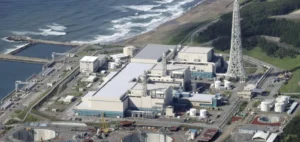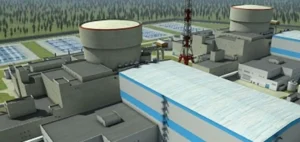A Sino-Russian nuclear agreement was signed. The aim is to strengthen cooperation between China and Russia in the field of nuclear energy. The document was signed by Rosatom Director General Alexei Likhachev and Zhang Kejian, head of CAEA, on the sidelines of Chinese President Xi Jinping’s visit to Russia. The agreement aims to expand cooperation in current projects and to implement new projects related to fast neutron reactors, such as uranium-plutonium fuel production and spent nuclear fuel processing.
Sino-Russian projects under construction
Russia is currently involved in the construction of units 7 and 8 of the Tianwan power plant and units 3 and 4 of the Xudabao power plant in China. According to Russian President Vladimir Putin, these projects are on track and should be completed as planned. Russia and China are working together to develop their nuclear energy sector, including building these nuclear power plants.
A “comprehensive” nuclear agreement
Rosatom said the document signed between Russia and China was “comprehensive” and covered a wide range of areas by expanding cooperation in current projects, as well as implementing new projects related to fast neutron reactors, such as uranium-plutonium fuel production and spent nuclear fuel processing. In addition, the program “provides for the preparation of a roadmap for its implementation by the end of 2024.”
In essence, the Sino-Russian agreement aims to establish cooperation over the coming decades and to form vectors for the development of nuclear energy worldwide. Both China and Russia are developing their nuclear power sectors and have already established ties, including the supply of Russian fuel for the sodium-cooled CFR-600 pool-type fast neutron nuclear reactor at Xiapu in China’s Fujian province.
An agreement on peaceful nuclear energy
It is important to note that the Sino-Russian nuclear agreement aims to promote peaceful nuclear energy. The potential risks associated with nuclear power generation have led to nuclear power often being considered a controversial energy source. However, the cooperation between Russia and China is aimed at promoting the peaceful use of nuclear energy and ensuring environmental safety.
To conclude the agreement signed between Russia and China to strengthen their cooperation in nuclear energy is an important step in the development of nuclear energy worldwide. Indeed, this marks an important step in the relations between the two countries and in their respective energy development. Ultimately, this initiative will help strengthen partnerships in the field of nuclear energy and could pave the way for future collaborations.






















